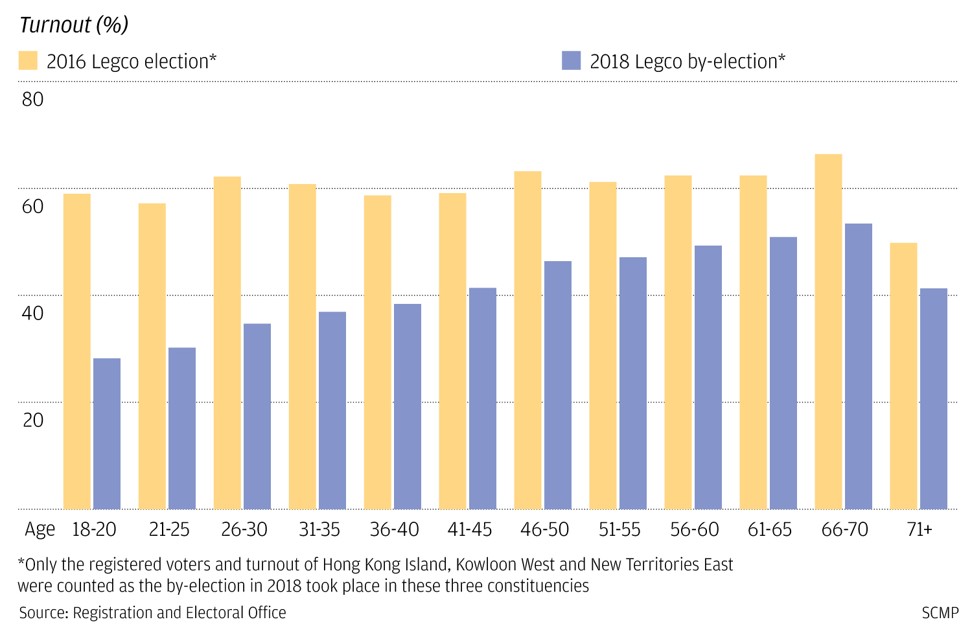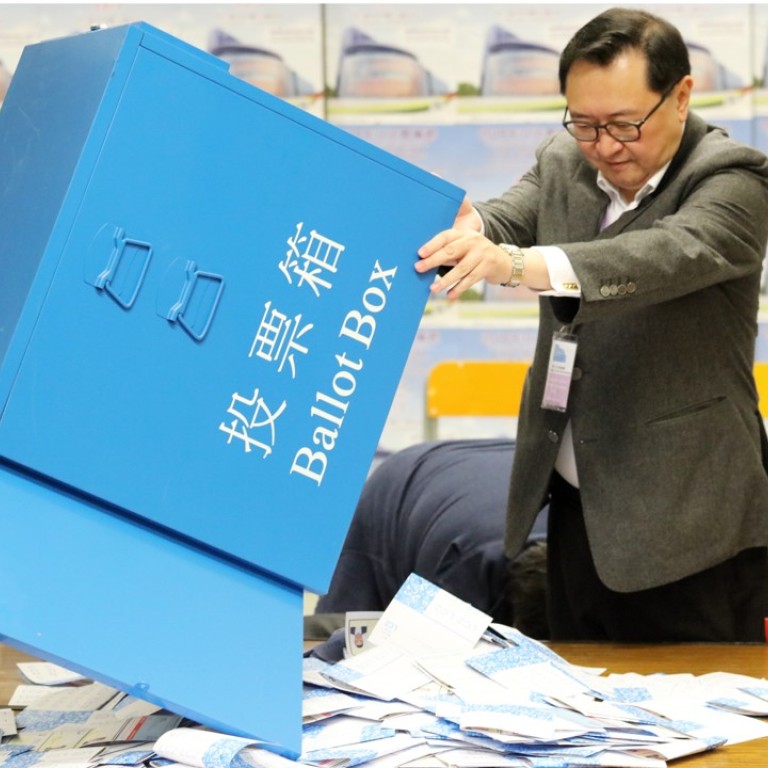
Are Hong Kong youths losing interest in politics? By-election turnout rates suggest they are
Big drop in voters from 18-20 age group casting ballots in March, data shows
That was partly to be expected as by-elections usually record low turnouts, but analysis of the data showed the drop across different age groups in general formed a linear curve – meaning the younger the voters, the bigger the decline.
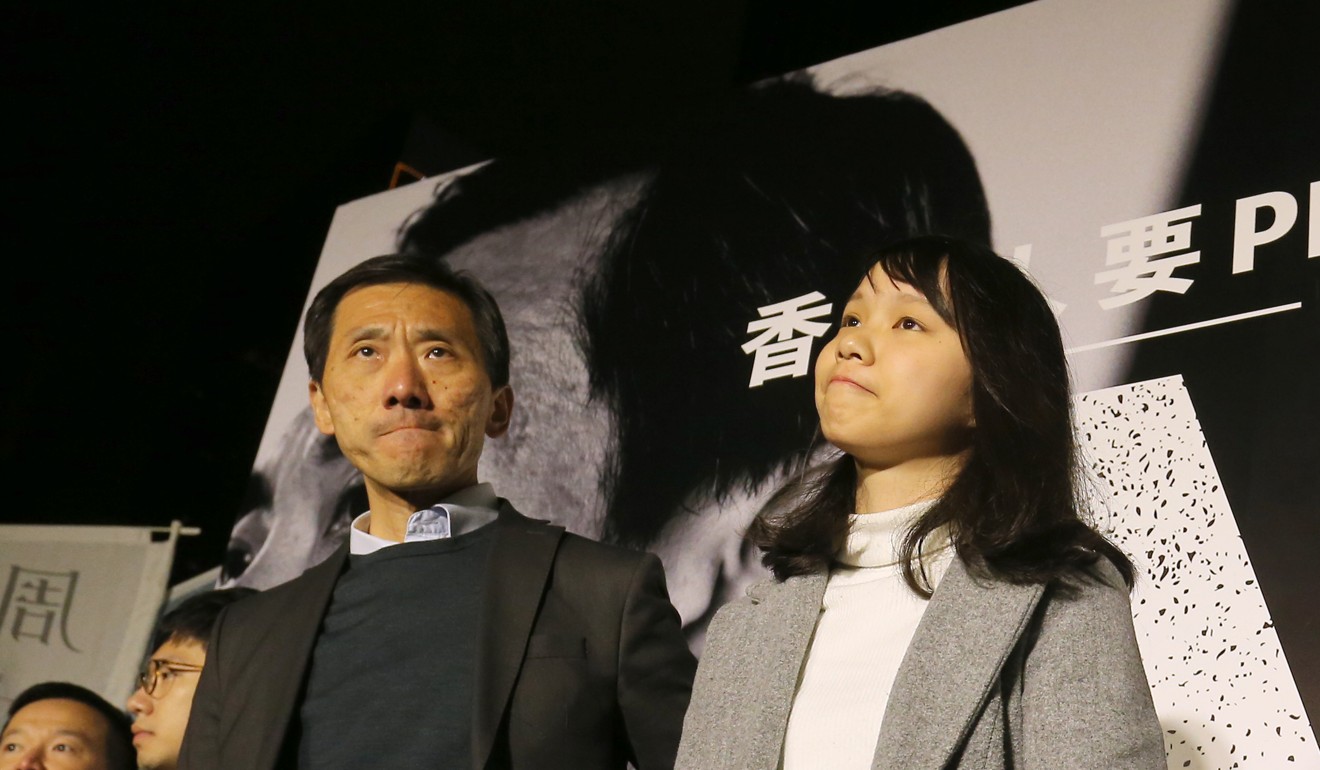
In the 2016 Legco election, voters in the 18-20 group clocked the largest increase in turnout levels – 16 percentage points – compared with the 2012 poll.
Political scientists said the statistics proved the theory that youths, in comparison to older citizens, were more likely to be affected by the political atmosphere in terms of voting behaviour.
With eye on poll, Hong Kong democrat to quit his party of 30 years
“[The significant drop in turnout] has highlighted the frustration and disappointment of the young people,” said political scientist Dr Ma Ngok of Chinese University, adding that such sentiments were amplified by the government’s earlier legal move to disqualify several popularly elected lawmakers.
The pro-democracy bloc however suffered a defeat. Edward Yiu Chung-yim, running in the Kowloon West constituency, became the first democrat to lose a by-election since the city’s return to Chinese sovereignty in 1997.
There is another by-election in November to fill one seat.
According to the data from the Registration and Electoral Office, just 28.2 per cent of voters aged 18 to 20 cast their ballots in March, down from 59 per cent in 2016. The turnout rate for the three age groups between 21 and 35 also fell significantly, ranging from 23.9 to 27.5 percentage points.
By-election winners sworn in to Hong Kong’s Legislative Council
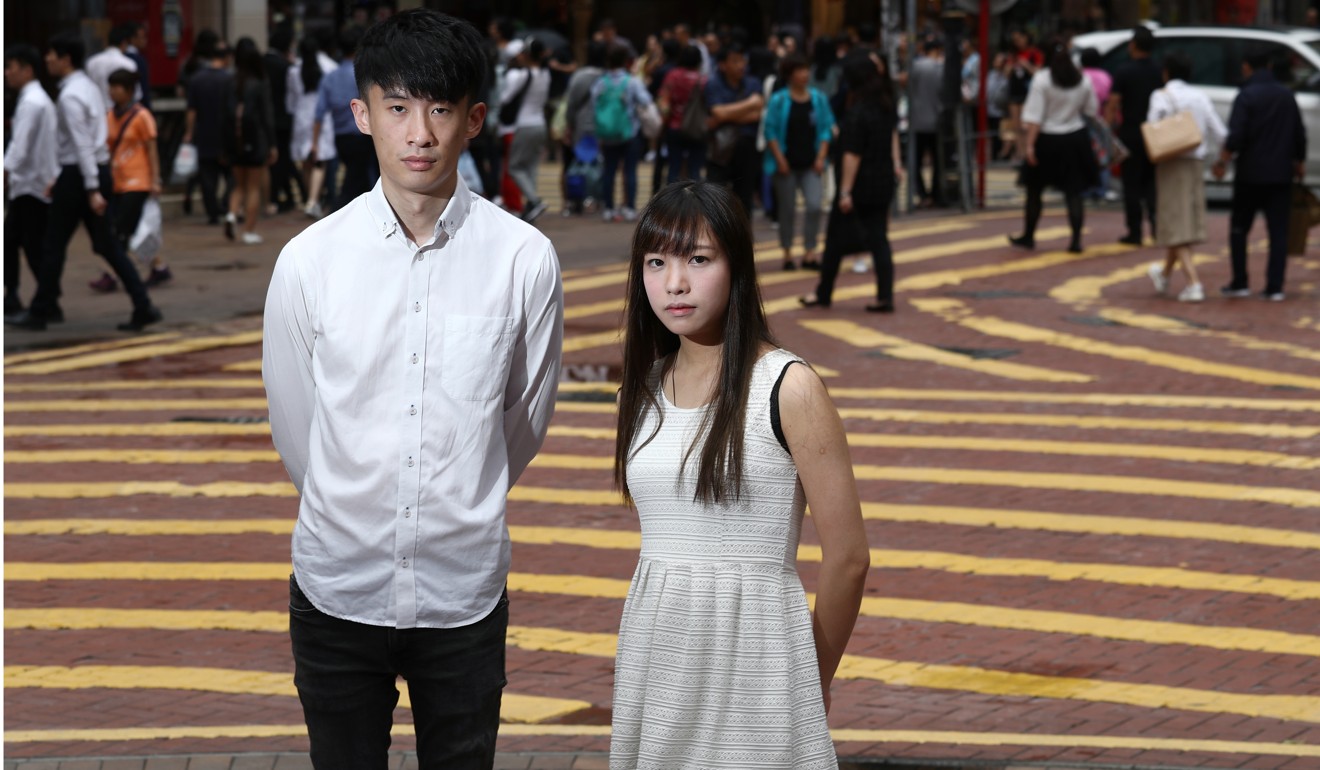
The turnout rate for a group reflects the number of votes cast as a share of its registered voters, and so comparisons between different elections do not reflect total votes cast by each group, which go up and down as demographic changes alter the group’s size.
In contrast, the voting behaviour of older citizens in March remained rather stable.
Hunt for Hong Kong’s missing pan-democrat voters is on
The drop in turnout levels of all the five age groups from 51 years old or above was less than the average of 16.8 percentage points.
Ma said it was a universal pattern for elderly and middle-aged people to vote in higher and steadier numbers. He believed the disqualification saga had prompted a significant portion of young people who had voted in 2016 to snub it this time.
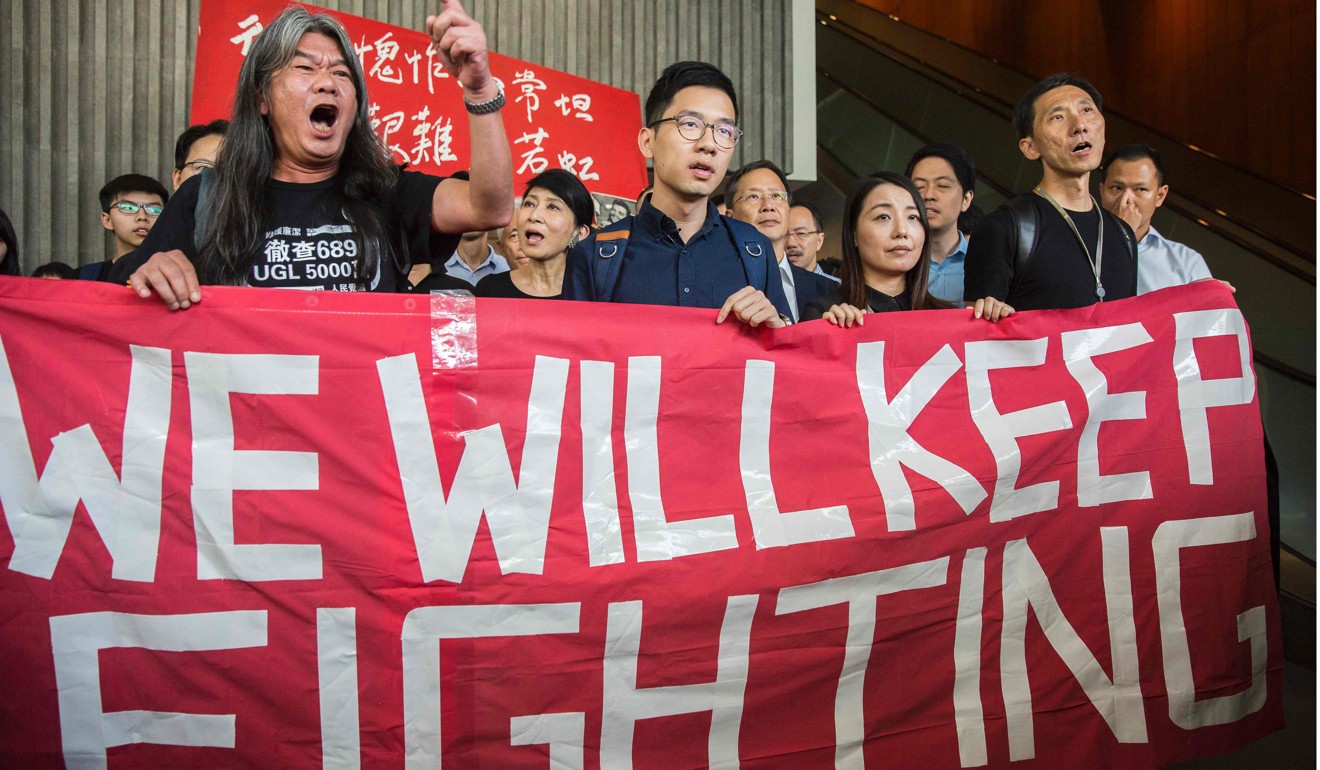
“All six ousted lawmakers were the choice of young voters in 2016, with most coming to attention following the Occupy movement,” he said, referring to candidates such as Occupy student leader Nathan Law Kwun-chung, of the Demosisto party, along with Sixtus Baggio Leung Chung-hang and Yau Wai-ching, of localist group Youngspiration.
“Some young people were disappointed by the disqualifications while others might not have found the new candidates from the pro-democracy bloc appealing.”
Ma said the findings suggested that the high turnout among young people in 2016 might have been a “one off”, adding the pro-establishment camp was less likely to be affected in elections by the political atmosphere given its older support base.
Additional reporting by Sum Lok-kei


